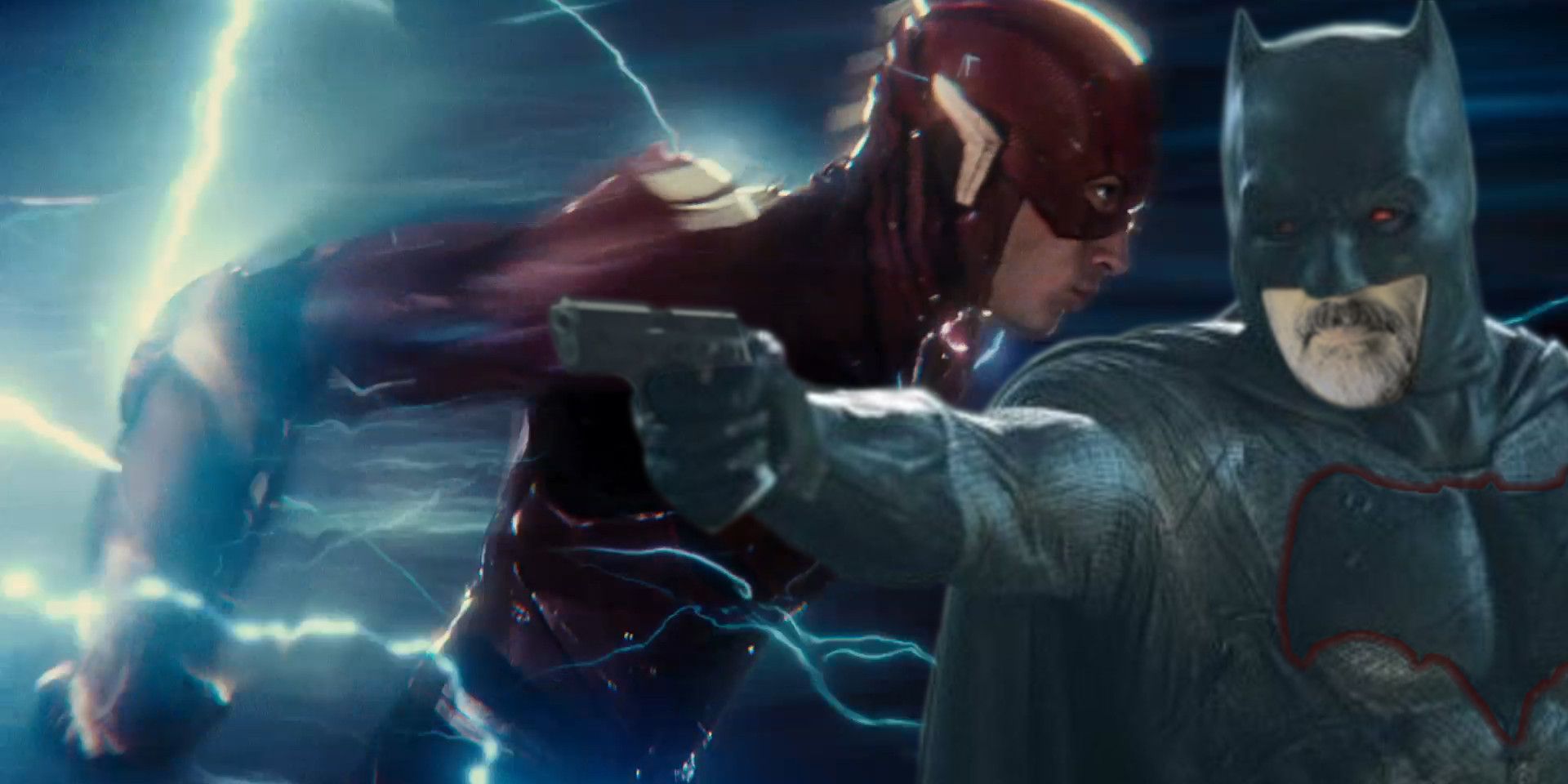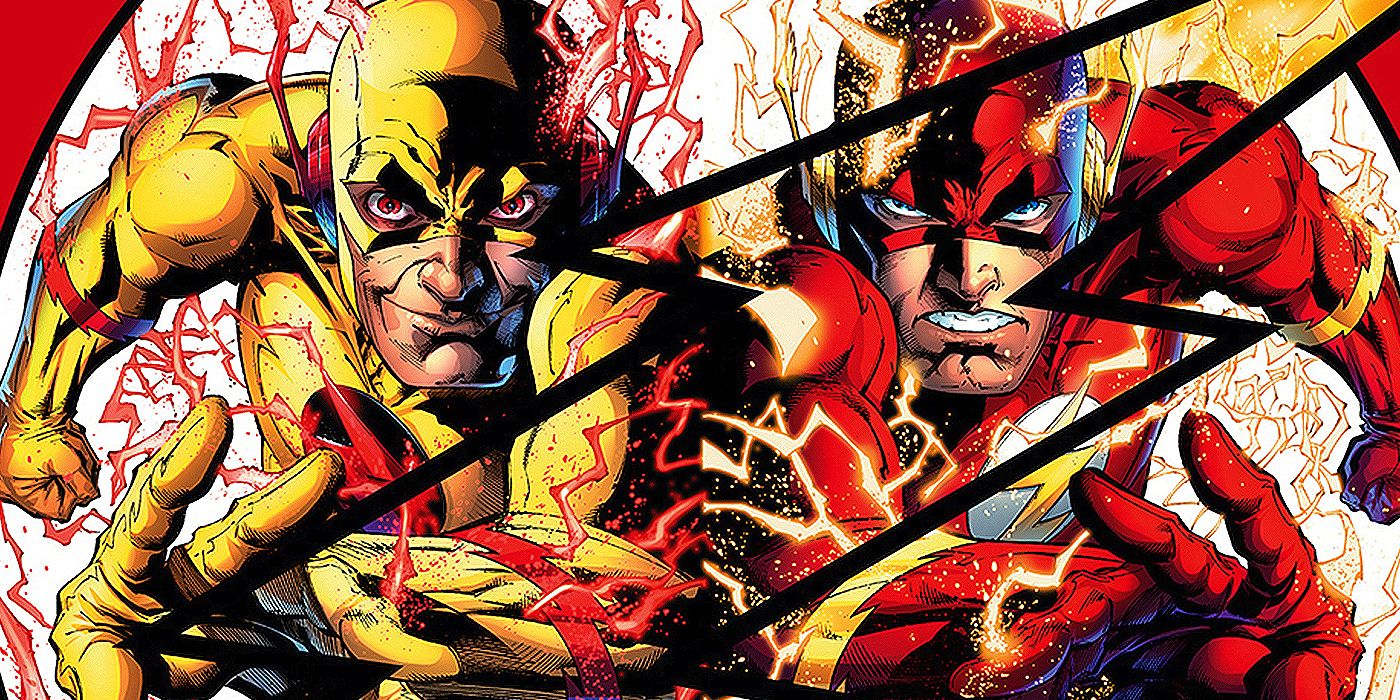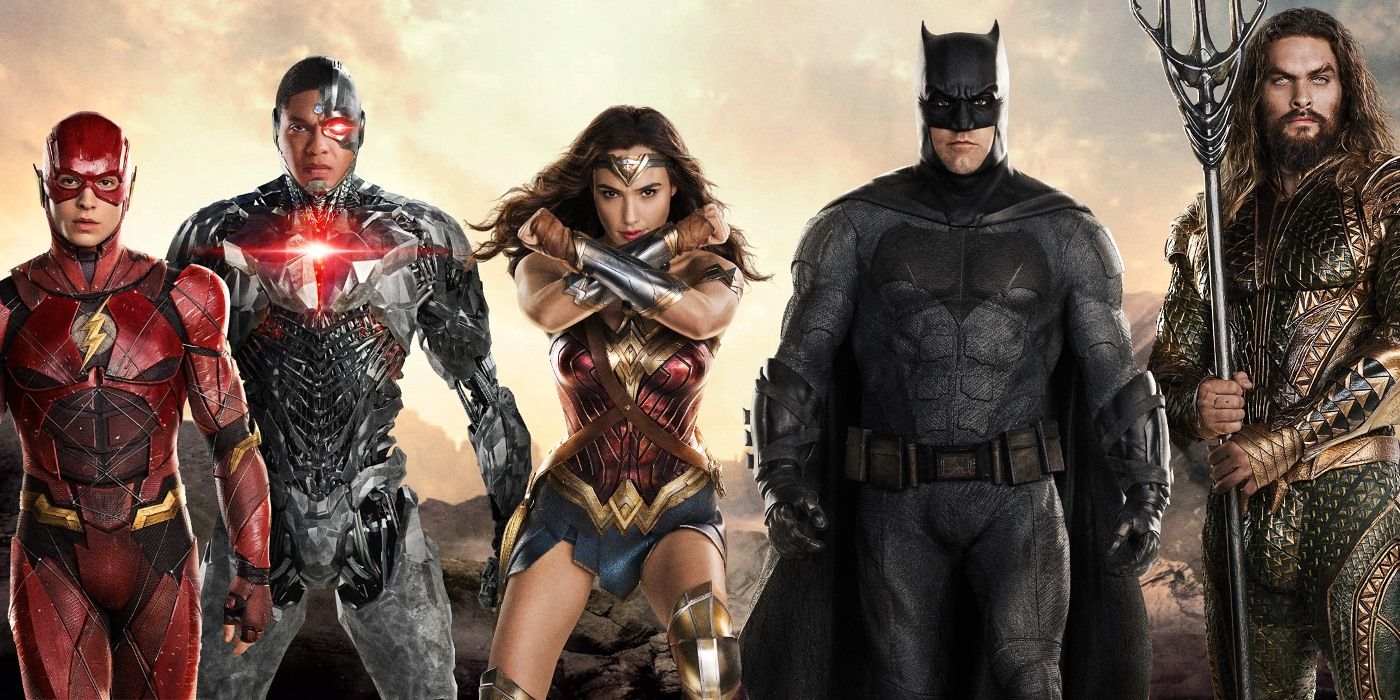During today's Hall H panel at San Diego Comic Con, Warner Bros. unveiled its updated film slate for the DC Extended Universe. Most of these films we already knew about - Suicide Squad 2, The Batman, Shazam, Justice League Dark, Wonder Woman 2, Green Lantern Corps, and Batgirl - but one film stood out as something new: Flashpoint.
Well, not entirely new, Warner Bros. has included The Flash starring Ezra Miller in their announced lineup for some time now, albeit without a release date. But the film has experienced a rocky production, shuffling through multiple screenwriters and directors. Last we heard, Robert Zemeckis was the frontrunner for the directing gig, while the most recent version of the script was being written by Joby Harold.
Titling the Flash movie Flashpoint isn't just some clever re-branding, the name comes from a significant comic book story and provides some big clues as to the direction the film (and possibly the entire DCEU) is likely going to take. Along with those clues come questions, because a Flashpoint - as demonstrated earlier this year on The CW's The Flash television series - is an event which usually comes with universe-altering consequences.
What Is Flashpoint?
Flashpoint is a 2011 DC Comics story written by Geoff Johns and illustrated by Andy Kubert, Alex Sinclair, and Sandra Hope, as well as a crossover event which spanned the entirety of DC's ongoing comic series at the time. In it, Barry Allen wakes up in a world he does not recognize. He isn't a speedster, there is no Justice League, and his fellow heroes are nothing like those he remembers. His mother is alive, though his father isn't, having died of heart attack, but he was never sent to prison, either. (Win?)
Still, the fact that nothing is as it should be sends him to find Batman - only to discover that this Batman is not Bruce Wayne but his father, Thomas, who after the murder of his son (who died in his parents place) turned to vigilantism. Together, they recreate the accident which first gave Barry his powers, and on their second attempt, it works. Convinced it must be his arch enemy, Eobard Thawn,e A.K.A. the Reverse-Flash, who is responsible for wrecking the universe, they leave to track him down.
Over the course of the series, Flash and Batman - along with Cyborg, this reality's greatest hero - rescue Kal-El from imprisonment in a government program where he'd been locked up since he was discovered as a child and prevented him from ever absorbing yellow sunlight and becoming Superman; get caught in the midst of Aquaman and Wonder Woman's Amazonian-Atlantean War (the aftermath of a failed political marriage attempt); and eventually catch up with Thawne, who tells them it was not him who caused Flashpoint, but Barry.
Similarly to how it was adapted on The Flash television series, Thawne reveals that Barry traveled back in time and prevented him from killing Barry's mother. He managed this by absorbing the Speed Force, which made Barry so powerful he shattered reality and altered everyone's personal history. It also turned Thawne into a living paradox, meaning he no longer even needs Barry around to ensure he'll exist. To set things right, Barry must return the past to the way it was and let his mother die by Thawne's hands.
Upon his arrival back home, Barry retains his memory of the altered timeline but doesn't notice the few ways in which the restored timeline still differs from what came before Flashpoint. From those small but significant changes came the New 52, itself a mystery of creation only now being fully explored in DC Comics' Rebirth.
How Will Flashpoint Impact The DCEU?
That's the big question, isn't it? How will the DCEU's version of Flashpoint affect their established continuity? Like the comics, the movie could explore an entirely different DCEU - with drastically different versions of DC's iconic heroes, totally new heroes, or different characters in those heroes' roles. For example, a Flashpoint movie could introduce the Thomas Wayne version of Batman; actor Jeffrey Dean Morgan, who briefly appeared as Thomas Wayne in Batman vs. Superman and is already a big fan of the idea. Plus, by the time Flashpoint releases, there will likely have been a good number of DCEU films - obviously Justice League and Aquaman, but also Shazam!, Wonder Woman 2, and a potential Harley Quinn vs. The Joker among others - which should mean the dynamics and relationships of the DCEU's many characters would be well-established and ready to be subverted.
Even if Warner Bros.' isn't interested in strictly adapting the Flashpoint comic, there's plenty to be done with a film that offers the chance to mix up the franchise's already established formula. Assuming Flashpoint is being written as a movie where Barry's actions inadvertently alter reality, and even after restoring the timeline, some things remain altered, then Flashpoint could very well be a transformative film for the DCEU. It may be an opportunity for Warner Bros. to take stock of what has worked and what hasn't at this junction of their DCEU slate. Some already believe this cinematic universe is undergoing a bit of course correction, but a plot device which can easily explain almost any change a studio would wish to make is clearly a better way of approaching a franchise-wide reset similar to X-Men: Days of Future Past - were that something Warner Bros. has interest in doing, which no one can really say for sure right now.
Either way, the magnitude of Flashpoint's announcement and its potential to radically alter (or even just tweak) what Warner Bros.' is really only beginning to build with the DCEU is enormous. They've planted a seed that at this stage is just ripe with possibilities, teasing either a bold new direction for the future of the DCEU or just an exciting adventure in where Warner Bros. can play around with audience's expectations of it characters. As it was in the comics, Flashpoint could be the first steps towards the DCEU's very own Rebirth.



